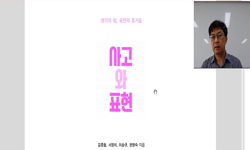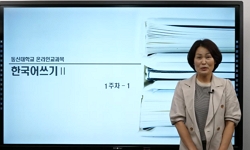Some scholars today often use the term ‘Expression education’ to refer to education that involves both speaking and writing. This term, however, seems rather difficult to be accepted in the field of language education. So, rather than defining so-...
http://chineseinput.net/에서 pinyin(병음)방식으로 중국어를 변환할 수 있습니다.
변환된 중국어를 복사하여 사용하시면 됩니다.
- 中文 을 입력하시려면 zhongwen을 입력하시고 space를누르시면됩니다.
- 北京 을 입력하시려면 beijing을 입력하시고 space를 누르시면 됩니다.

선진국의 표현 교육과 평가 사례 연구-프랑스와 뉴질랜드를 중심으로- = ‘Expression Education’ and Evaluation of Developed Countries -Case of France and New Zealand-
한글로보기https://www.riss.kr/link?id=A104035952
-
저자
장한업 (이화여자대학교)
- 발행기관
- 학술지명
- 권호사항
-
발행연도
2014
-
작성언어
Korean
-
주제어
Language Teaching ; Expression ; Speaking ; Writing ; Evaluation ; Intercultural Education ; Migrant Student ; 언어교육 ; 표현 ; 말하기 ; 쓰기 ; 평가 ; 상호문화교육 ; 이민 학생
-
등재정보
KCI등재
-
자료형태
학술저널
- 발행기관 URL
-
수록면
27-42(16쪽)
-
KCI 피인용횟수
1
- DOI식별코드
- 제공처
-
0
상세조회 -
0
다운로드
부가정보
다국어 초록 (Multilingual Abstract)
Some scholars today often use the term ‘Expression education’ to refer to education that involves both speaking and writing. This term, however, seems rather difficult to be accepted in the field of language education. So, rather than defining so-called ‘Expression education’, I, as one of those who believe the creation of such a term to be unnecessary, stress the need of teaching and evaluating speaking and writing skills in language courses. In fact, the French Baccalaureate and New Zealand’s National Certificates of Educational Achievement (NCEA) evaluate the speaking and writing competence of high school students, which has a strong influence on their learning. “Let’s compare our languages”, a DVD material developed in France, shows us how to make full use of foreign students’ language competence in the Korean language classroom.
국문 초록 (Abstract)
모든 언어교육은 학습자의 듣기, 말하기, 읽기, 쓰기 능력 신장을 목표로 한다. 듣기와 읽기가 이해 능력이라면, 말하기와 쓰기는 표현 능력이라 할 수 있다. 오늘날 일부 학자들은 이 표현 ...
모든 언어교육은 학습자의 듣기, 말하기, 읽기, 쓰기 능력 신장을 목표로 한다. 듣기와 읽기가 이해 능력이라면, 말하기와 쓰기는 표현 능력이라 할 수 있다. 오늘날 일부 학자들은 이 표현 능력을 강조하는 차원에서 ‘표현 교육’이라는 용어까지 사용하고 있다. 하지만 이 용어는, ‘구어 교육’이나 ‘문어 교육’과는 달리, 언어교육학계에서 통용되는 용어라 보기 어렵다. 그 주된 이유는, ‘말하기 교육’과 ‘쓰기 교육’을 굳이 하나로 묶어 교육해야 할 뚜렷한 이유가 없다고 보기 때문이다. 따라서 우리는 본 논문을 통해, ‘표현 교육’이라는 새로운 영역을 따로 설정해야 할 필요성에 대해 논하는 대신에, 우리의 대학수학능력시험에 해당하는 프랑스와 뉴질랜드와 같은 선진국에서는 말하기와 쓰기를 어떻게 교육하고 평가하고 있는지 알아보고자 하였다. 이 두 나라의 사례는, 읽기에 지나친 비중을 두고 있는 우리의 언어교육에 많은 시사점을 던져 주리라 생각한다.
참고문헌 (Reference)
1 Abdallah-Pretceille, M., "유럽의 상호문화교육" 한울 2010
2 Common European Framework of Reference for languages, "언어 학습 교수 평가를 위한 유럽공통참조기준" 한국문화사 2010
3 장한업, "뉴질랜드 프랑스어 교육의 특징과 그 시사점" 76-91, 2006
4 Auger, N., "Élèves nouvellement arrivés en France" 2010
5 "French in New Zealand Curriculum"
6 Auger, N., "Comparons nos langues. Démarche d’apprentissage du français auprès d’Enfants Nouvellement Arrivés (ENA)"
7 Chrifi Alaoui, D., "Analyse de Comparons nos langues" 10 : 2007
1 Abdallah-Pretceille, M., "유럽의 상호문화교육" 한울 2010
2 Common European Framework of Reference for languages, "언어 학습 교수 평가를 위한 유럽공통참조기준" 한국문화사 2010
3 장한업, "뉴질랜드 프랑스어 교육의 특징과 그 시사점" 76-91, 2006
4 Auger, N., "Élèves nouvellement arrivés en France" 2010
5 "French in New Zealand Curriculum"
6 Auger, N., "Comparons nos langues. Démarche d’apprentissage du français auprès d’Enfants Nouvellement Arrivés (ENA)"
7 Chrifi Alaoui, D., "Analyse de Comparons nos langues" 10 : 2007
동일학술지(권/호) 다른 논문
-
- 한국국어교육학회
- 신호철
- 2014
- KCI등재
-
초등 문학 수업에서 교과 내용 지식의 의의 연구-민담 수업을 중심으로-
- 한국국어교육학회
- 조용훈
- 2014
- KCI등재
-
- 한국국어교육학회
- 민병곤
- 2014
- KCI등재
-
한국어능력시험 읽기 영역 난이도 분석-외국인과 국내 초등학생 간 비교를 중심으로-
- 한국국어교육학회
- 양길석
- 2014
- KCI등재
분석정보
인용정보 인용지수 설명보기
학술지 이력
| 연월일 | 이력구분 | 이력상세 | 등재구분 |
|---|---|---|---|
| 2027 | 평가예정 | 재인증평가 신청대상 (재인증) | |
| 2021-01-01 | 평가 | 등재학술지 유지 (재인증) |  |
| 2018-01-01 | 평가 | 등재학술지 유지 (등재유지) |  |
| 2015-01-01 | 평가 | 등재학술지 유지 (등재유지) |  |
| 2013-12-04 | 학회명변경 | 영문명 : 미등록 -> The Association of Korean Education |  |
| 2013-12-01 | 학술지명변경 | 외국어명 : The Modern Education Of Korean Language -> KOREAN EDUCATION |  |
| 2011-01-01 | 평가 | 등재학술지 유지 (등재유지) |  |
| 2009-01-01 | 평가 | 등재학술지 유지 (등재유지) |  |
| 2006-01-01 | 평가 | 등재학술지 선정 (등재후보2차) |  |
| 2005-01-01 | 평가 | 등재후보 1차 PASS (등재후보1차) |  |
| 2004-01-01 | 평가 | 등재후보학술지 유지 (등재후보1차) |  |
| 2003-01-01 | 평가 | 등재후보학술지 선정 (신규평가) |  |
학술지 인용정보
| 기준연도 | WOS-KCI 통합IF(2년) | KCIF(2년) | KCIF(3년) |
|---|---|---|---|
| 2016 | 1.06 | 1.06 | 1.05 |
| KCIF(4년) | KCIF(5년) | 중심성지수(3년) | 즉시성지수 |
| 0.98 | 0.95 | 1.479 | 0.34 |




 KCI
KCI 스콜라
스콜라






